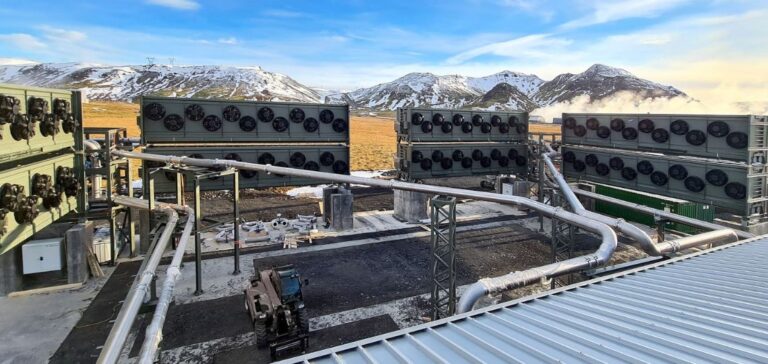Global technology companies are stepping up their efforts to meet ambitious environmental targets. Microsoft recently took another step forward by signing a major agreement with 1PointFive, a subsidiary of Occidental Petroleum, to purchase 500,000 tonnes of carbon credits. This commitment, the largest to date using direct carbon capture (DAC) technology, reflects Microsoft’s determination to offset its massive CO2 emissions, while maintaining exponential growth in its data infrastructures.
Direct carbon capture (DAC)
Direct atmospheric carbon capture is a technology that extracts CO2 directly from the atmosphere. This method, recommended by the UN, is increasingly being adopted by technology companies such as Microsoft and Google, who are aiming to achieve zero net emissions by 2030. Michael Avery, CEO of 1PointFive, said, “The demand for energy in the technology industry is increasing, and we believe that direct air capture is perfectly suited to eliminating residual emissions and furthering climate goals.”
Impact and prospects of DAC
Despite the advantages of DAC, some experts fear it could become an excuse to avoid reducing emissions at source. However, the technology industry, whose energy consumption is constantly increasing, seems to see this technology as a viable solution. In 2023, Google saw its greenhouse gas emissions reach 14.3 million tonnes of CO2, an increase of 48% in four years, while Microsoft’s rose by 29% in three years. These increases are mainly due to the increased energy requirements of the data centers needed for generative AI.
Similar agreements and DAC costs
Microsoft is not the only company to invest heavily in direct carbon capture. Amazon has signed a similar agreement with 1PointFive for the purchase of 250,000 tonnes of carbon credits over ten years. The carbon credits acquired by Microsoft and Amazon will be generated by Stratos, 1PointFive’s first DAC plant, currently under construction in Texas. Companies are prepared to pay more than $1,000 per tonne of CO2 captured, a high cost that reflects the urgency and complexity of today’s climate challenges.
This agreement between Microsoft and 1PointFive marks an important step in the fight against climate change. It also illustrates the desire of technology giants to combine innovation and environmental responsibility. However, increased reliance on technological solutions such as DAC raises questions about the balance between reducing emissions at source and carbon offsets. As demand for cleaner technologies grows, the energy sector must continue to evolve to meet these new challenges.






















